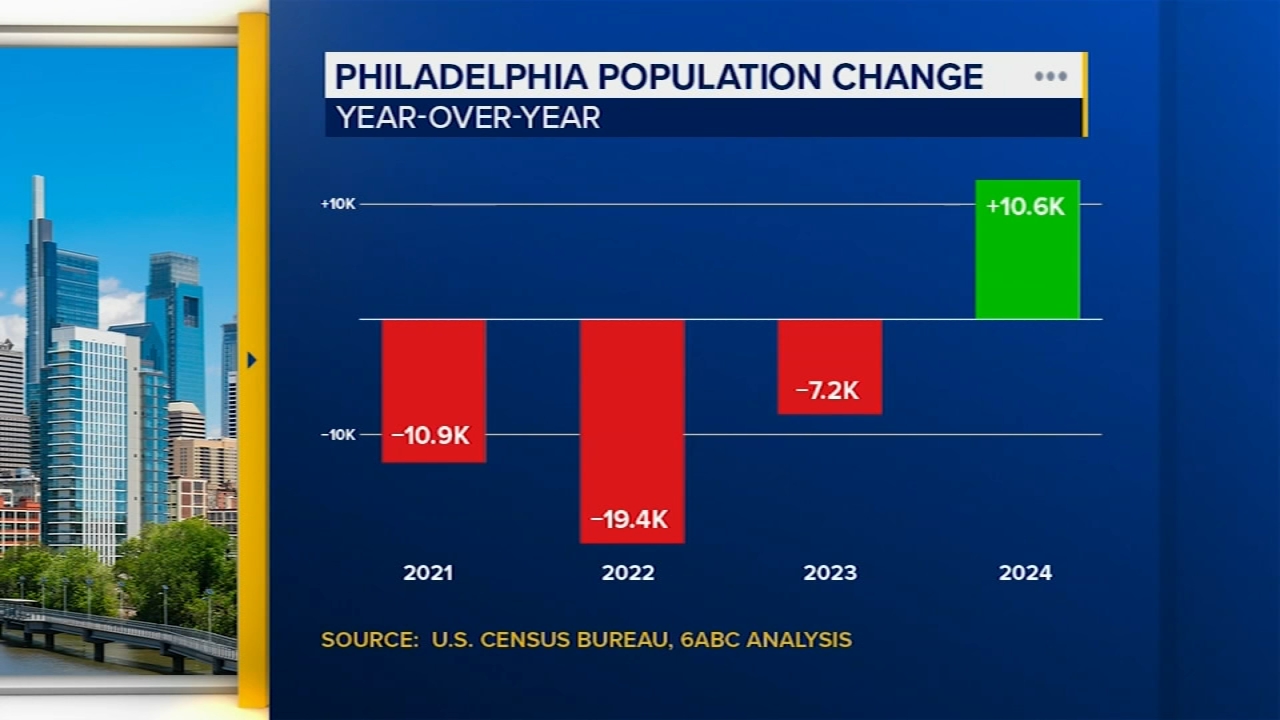New Jersey officials strongly recommend masking in indoor settings with increased risk
In the tri-state area, New Jersey falls into the "substantial" transmission category.
TRENTON, New Jersey (WPVI) -- Vaccinated and unvaccinated residents in New Jersey should wear masks indoors when there is an increased risk of spreading COVID-19, Gov. Phil Murphy said Wednesday.
Murphy, a Democrat, said the state's coronavirus metrics are going in the wrong direction, and new data suggest the delta variant is more transmissible, "which is why we are making this strong recommendation."
Instances where masks are recommended include: crowded indoor settings, those involving close contact with others who aren't fully vaccinated and those where someone's vaccine status is unknown.
Murphy made the recommendation in a joint statement with Health Commissioner Judy Persichilli.
It comes just a day after the Centers for Disease Control and Prevention issued new guidance. The federal guidance on masks in indoor public places applies in parts of the U.S. with at least 50 new cases per 100,000 people in the last week. That includes 60% of U.S. counties, officials said. New case rates are particularly high in the South and Southwest, according to a CDC tracker.
In New Jersey, CDC data shows eight of the state's 21 counties fall in that category.
RELATED: CDC updates indoor mask guidelines, even for people who are fully vaccinated
The CDC guidance also called for masks for teachers, staff and students in schools regardless of vaccination status.
Murphy's recommendation didn't address schools. Murphy spokesperson Alyana Alfaro Post said Wednesday there was no update yet on masks in schools.
New Jersey has among the highest percentages of people vaccinated in the country.
"We have crushed this virus repeatedly like no other state in the nation, and we are proud to boast among the country's highest vaccination rates," Murphy and Persichilli said in a statement. "But at this point, given where our metrics are now, we feel the best course of action is to strongly encourage every New Jerseyan, and every visitor to our state, to take personal responsibility and mask up indoors when prudent."
Vanessa Carranza of Eastampton Twp., and her daughter don't mind wearing masks.
"At this point with everything going on it's better to have your mask on," said Carranza.
RELATED: CDC reverses course on indoor masks in some parts of US
Both mother and daughter are unvaccinated.
Kaylee, 17, is nervous, but willing, especially if it keeps her in school.
"Because people are saying they get sick with side effects and stuff. But I mean if that's what we have to do then I guess I'll do it," she said.
But her mom's not ready.
"I'm actually a little scared to get it. I don't want her to get it either. At least not yet," said Carranza.
Burlington County is holding a series of clinics at schools as September approaches.
"Eligible children need to get vaccinated. It is the way to keep your kid in school, keep your education going, keeping parents going to work," said Burlington County Health Director Dr. Herb Conaway.
Because children under 12 aren't eligible to be vaccinated, Conaway recommends that all school districts require masking for everyone.
So far, the state guidance leaves that decision up to each district.
In Ocean County, the vaccination rate among adults is about 55%, compared to the state's vaccination rate for adults which is almost 70%.
Ocean County is also seeing a higher load of new daily cases compared to the state overall.
Officials there would also like to see more teens getting vaccinated.
"We are seeing a little bit of reluctance among that population and among the 20s and 30s as well," said Ocean County Public Health Coordinator Daniel Regenye.
The state has highlighted the following towns as areas of concern for Ocean County: Brick, Lakewood, Toms River, Lacey and Jackson.
While any cases along the Jersey shore among visitors would be reported to a person's home county, officials are urging people to get vaccinated before they visit.
"We would encourage everybody if they're visiting here to Ocean County, or even our residents visiting elsewhere, to follow all the guidelines that we've been putting out there for the last 16 months," said Regenye. "And if you're not well, get tested beforehand."
The AP contributed to this report.










